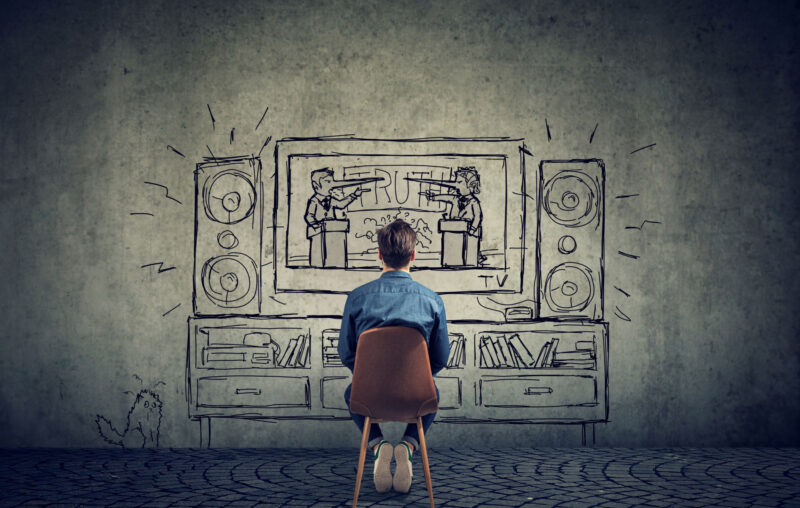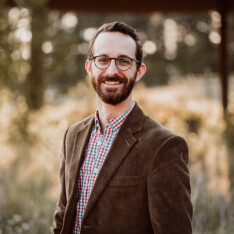The Trouble with Politics in Pop Culture

In 2023, our politics and our entertainment have become so blurred that we can hardly distinguish one from the other. As a result, we are inundated by politics everywhere we turn. Late night television, the morning sports recap, Disney movies, even the beer aisle at the local supermarket. But as the volume of politics in our daily lives has increased in the twenty-first century, the quality of that content has drastically declined. And since our public education system does a dreadful job of teaching history and civics, often sacrificing the humanities on the altar of STEM (Science, Technology, Engineering, and Mathematics), Americans’ understanding of their own political system is the chief casualty.
We could point to many culprits in the decline of the popular American political culture, but I blame Kevin Spacey. The actor has plenty of personal problems to face these days, so I don’t mean to heap on. What I mean is that his tremendously successful 2013 Netflix show House of Cards was a real turning point in our culture. It was the first streaming show ever to receive Emmy nominations, ultimately winning 7 of them.
The show was adapted from a BBC program of the same name, and it was these British roots that set the stage for the absolutely ridiculous plot points that enthralled the emergent binge-watching community for the next several years. In the parliamentary system, there can be early elections, surprising shifts in alliances, and unexpected shifts in leadership. In the American system, however, everything is locked into a regular election cycle and tempered by the two-party system, making outcomes relatively predictable (2016, perhaps, being the exception that proves the rule). Yet, House of Cards painted a picture of the United States where political outcomes could be turned by sheer force of will from a few key power players who could manipulate the entire federal system to their liking, while always getting the better part of luck in entirely improbable scenarios.
House of Cards made for exciting television, but it made for a horrible civics education. This was a problem in the increasingly bizarre political climate of the late Obama years. By the time we reached the 2016 primaries, many media pundits were wondering whether House of Cards could stay relevant in the tidal wave of Trump-related news. Such critiques, though, revealed the extent to which even national elites were using pop culture as their frame of reference for interpreting uncertain events.
While I’m blaming folks in Hollywood, I might as well give Aaron Sorkin his due. More than any other popular writer in this generation, he has encouraged Americans to see politics and the federal government as the vehicle for achieving our highest aspirations. The Newsroom and The West Wing (which, though a decade old, found new life in the 2010s thanks to streaming television and the advent of re-watch podcasts) sought not only to shape audience opinions about all sorts of present-day political issues, but it also aimed to educate them about how politics and government worked. The problem was that it often got it wrong, either by oversimplifying details or ignoring counterarguments.
The end result was audiences of millions with faulty understandings about how things actually work. In no small part, Sorkin’s programs are responsible for the persistence of popular misunderstandings of how the Electoral College works and why it was created, and the purpose of the two-house legislature and why states get equal representation in the Senate.
It wasn’t just our drama shows that became more obsessed with politics despite the general ignorance of the details. Late night television became a political theater, thanks to the popularity among then-college-aged millenials of cable comedy programs The Daily Show and The Colbert Report, which posed as mock-political commentary. This shift reached maturity in 2015 when CBS elected to turn fiction into reality by selecting Stephen Colbert to replace longtime late night host David Letterman, thus giving the comedian a nightly platform to interview American officials and lecture viewers on the “proper” political viewpoints. This, perhaps, set the stage for the ultimate entertainer promotion to real-world political influencer: the election of The Apprentice star Donald Trump to the presidency.
The equation has worked the other way around, too. The world of political partisanship has increasingly intruded into the world of entertainment. The New York Times’ deeply flawed “1619 Project” was made into a featured documentary aimed at educating a general audience. Conservative news organizations like Fox and the Daily Wire have launched entertainment branches to compete with Hollywood productions, infusing their programming with their preferred political narratives.
Social media, of course, has played a roll in this national miseducation. It became increasingly clear during the 2016 and 2020 election cycles, for example, that the incentives for companies like Facebook and Twitter to maximize user engagement and screen time led to algorithms that promoted the most sensational and polarizing content, not necessarily the most thoughtful or nuanced. Thus, Americans could rapidly invent and disperse their own House of Card-style plots of a Russian Manchurian candidate or stolen federal elections. And then they could rapidly mobilize their virtual communities into real-world action over imagined crises.
This all matters because in a democracy, our only protection against demagoguery of all sorts, is individual education. Popular culture shouldn’t bear the brunt of that task. Parents should educate their children about the American system. Local schools should have a vested interest in preparing their citizens to be informed voters. Political leaders at every level have a moral obligation to speak truthfully about the challenges we face and the realities and necessary constraints of the system within which we must work. But the entertainment world has a responsibility here, too. With massive audiences and considerable influence, these networks and productions are responsible for the misinformation they distribute.
Perhaps we would all be better off if they focused more entertainment and much less on playing politics.










